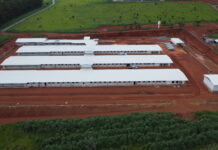Recurring food crisis-afflicting Africa and the rest of the globe-spurred by indecisiveness on the fate of the small scale farmers-threatened by among other headwinds-geopolitical, debt and climate change should be redressed for sustained food systems and avert hunger, a leading food rights campaigner has noted.
FIAN International, an International Human Rights Organization advocating for the realization of the right to food and nutrition for 30 years operational in 50 countries across Africa, Asia, Europe, central/south America since 1986 calls for global policy coordination to address global rules, trade and debt as some of the guarantees for sustained food systems.
In a 15-page report, the global campaigner notes various shortcomings fueling the hunger crisis across the globe, chiefly Africa and calls for various intervention, policy consistencies among key players. FIAN further seeks durable and sustained resolutions to the escalating war in Russia-Ukraine and debt.
Dubbed: “food crisis response entrenches corporate influence”, the briefing for October calls for global policy coordination within an inclusive and democratic multilateral governance mechanism to address global rules shaping issues, trade and debt.
To avert food price spikes and ensure sufficient public budgets are available, there is an urgent need for market regulation and debt cancellation.
The Recurring global food crises clearly illustrate the need for a profound human-rights-based transformation of food systems away from dependency on global trade and fossil-fuel-based inputs and towards agro-ecological, localized food systems to ensure long-term resilience and overcome structural inequalities.
Recurring global food crises also illustrate that countries must urgently take action to end suffering caused by lack of access to food. Countries afflicted are unable to solve the problems alone citing structural inequalities in the global economic system preventing governments from decisive and meaningful actions.
Among other resolutions, FIAN International seeks global policy coordination within an inclusive and democratic multilateral governance mechanism to address global rules shaping issues such as trade and debt.
To avoid food price spikes and ensure sufficient public budgets are available, there is an urgent need for market regulation and debt cancellation.
“Such global policy coordination must consider the inequalities between countries and prioritize the voice of the most affected countries and people instead of being done in non-democratic multistakeholder spaces dominated by the most powerful players, as is currently the case.”
Among the wide-range of demands for durable and lasting solution to the threatened food systems, the campaigner calls for an immediate end to the seven -month Russia-Ukraine-war as well as all conflict-affected countries to avert further harm to civilian populations, and the search for conflict solutions which address structural drivers fuelling hunger and malnutrition, as well as war, armed conflicts and widespread violence.
Urgent action be taken to redress the food emergency through social policies that prioritize the most marginalized groups and countries. To be meaningful, any emergency interventions must be in line with the much-needed longer-term human-rights based transformation of food systems.
The Governments should among other long-term measures, support existing people`s responses to the emergency; ensure food aid, when needed, is sufficient and timely, culturally appropriate, free from corporate interference, in support of the local food system and well-coordinated with civil society organisations
Render support to local agroecological food production and consumption instead of industrial food production and reliance on imports. Governments should ensure the rights to land, water, and seeds; and ensure access to cheap financial resources especially credit from financing agencies.
There is a need to support peasant agricultural and fishing inputs, infrastructure, information and commercialization opportunities; uphold their extraterritorial state obligations and desist from exporting domestically prohibited pesticides.
Other contingency measures include stabilising food price volatility and revert vulnerability through import dependency. Governments need to establish public food reserves at local, national and regional level as a matter of urgency, giving priority to food sourced from agro-ecological, small-scale food producers
Regulate prices of essential goods as well as markets and curb financial speculation; transform trade rules to serve people and planet, not corporations by halting free trade agreements and dismantling WTO agreements.
Reduce and eliminate foreign debt, while taking urgent action on addressing the crucial intersection of climate emergency and eco-destruction and the industrial food system as one of their major drivers.
Incorporate the just and equitable distribution of land and territories in public policies addressing climate change and biodiversity loss, in order to promote small-scale food producers in their role as ‘stewards of ecosystems’ that is based on their sustainable land and forest management practices (such as agroforestry and agroecology).
Implement appropriate public policies to address the high climatic, environmental, economic, food, and nutritional vulnerability of small-scale food producers and other marginalised communities.
Ensure the development and implementation of appropriate, human rights-based policies for food systems at all levels. Governments are encouraged to ensure there is meaningful participation of rights-holders in decision-making processes at all levels, while ensuring effective regulation to implement existing human rights-based policies.
It calls for control of corporate interference in rights and democratic processes; support the process of the Binding Treaty on Transnational Corporations and Human rights before the UN Human Rights Council.
As, a key instrument to regulate and hold corporations accountable; and design and implement national policies accordingly. Take multilateral coordinated action on addressing the global systemic food crises in the CFS, among other measures.








